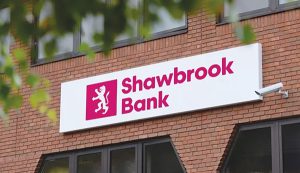Bloomberg
A UK lender is offering to pay bondholders higher interest to swap debt rather than risk tapping sterling’s chaotic
market for fresh cash.
With no sign of volatility easing yet, Shawbrook Group wants to keep investors happy by moving them to new notes that offer an 8.099 percentage-point premium over UK gilts, an extra 100 basis points versus its existing perpetual bonds. Under normal conditions, it would exercise an option to redeem them in December and issue new debt in the open market.
It’s a rare move that shows just how much trouble there is in the UK. Not a single company or bank has tapped the sterling market for fresh bonds since September 20, days before a new budget announcement caused a record rout for gilts. That led the Bank of England to intervene, pension funds to suffer forced selling, lenders to pull mortgages and the International Monetary Fund to tell off the government.
“It’s understandable that Shawbrook didn’t go for a clean call given the extreme moves in rates and spreads this year and especially in the UK in the past few weeks,†said Dillon Lancaster, a portfolio manager at TwentyFour Asset Management, which holds some of Shawbrook’s so-called additional tier 1 notes.
The novel approach likely reflects the challenge many corporate treasurers are
currently facing.
The exchange shows that the BC Partners-owned bank is willing to pay a big interest rate — most likely in the double-digits — for at least five years in order to keep a captive group of investors. The new bonds’ rate will be fixed for the first five years and is being set at a time when five-year gilt yields are at their highest since the global financial crisis.
“This exchange is as good as they can hope in order to keep bondholders with them for the longer journey,†said Lancaster, who helps oversee £18.7 billion ($20.7 billion).
Yet this also creates a challenge for the bank as its higher costs of capital could have a knock-on effect on lending. Shawbrook’s main focus of small firms, property investors and consumers are especially at risk as UK growth slows down amid a cost-of-living crisis. The UK economy shrank unexpectedly in August, raising the possibility of a recession.
 The Gulf Time Newspaper One of the finest business newspapers in the UAE brought to you by our professional writers and editors.
The Gulf Time Newspaper One of the finest business newspapers in the UAE brought to you by our professional writers and editors.
